The content on this website is for informational purposes only and is not meant to replace professional or medical advice. See our full disclaimer.
Emotional regulation is the process of managing the intensity and expression of your emotions in a way that is appropriate to the situation.
If you are ADHD, you may find that for some or all of your emotions, there seem to be only 2 settings – off and overpowering. You do not get a little bit upset or a little bit excited, you are completely indifferent or overwhelmed.
Know that there is nothing wrong with you, this is just how your brain is wired. Because that is different from most other brains, you may have been made to feel that this is wrong.
Sometimes these powerful emotions can be great. When we enjoy something, we really love it and have a fantastic time. When we are passionate about something, we fight for it with all that we have.
But when we are down or depressed, we are really down. Things that seem relatively unimportant to others can be hugely upsetting for us.
How can we have the benefits without the drawbacks? Unfortunately, to a certain extent, they come as a package, but there are ways to try and manage these emotional extremes.
Jump to:
Common Emotional Challenges that ADHDers Face
Heightened Sensitivity
Individuals with ADHD often feel things more intensely, reacting strongly to situations that others may not find as stressful.
Executive Function Impairments
Common ADHD traits like difficulty with attention, memory, and self-control can make it harder to manage emotional responses.
Quick Emotional Shifts
Emotions can escalate quickly, going from calm to intense in a short time, which can be confusing for both the person with ADHD and those around them.

Difficulty Processing Feelings
People with ADHD may struggle to understand and cope with their emotions as they happen, which can lead to increased anxiety and frustration.
Impact on Social Situations
Because their emotional responses can seem too strong, individuals with ADHD might have a harder time with social interactions.
These challenges are more common in people with ADHD because of the differences in the ADHD Brain vs. the Neurotypical Brain.
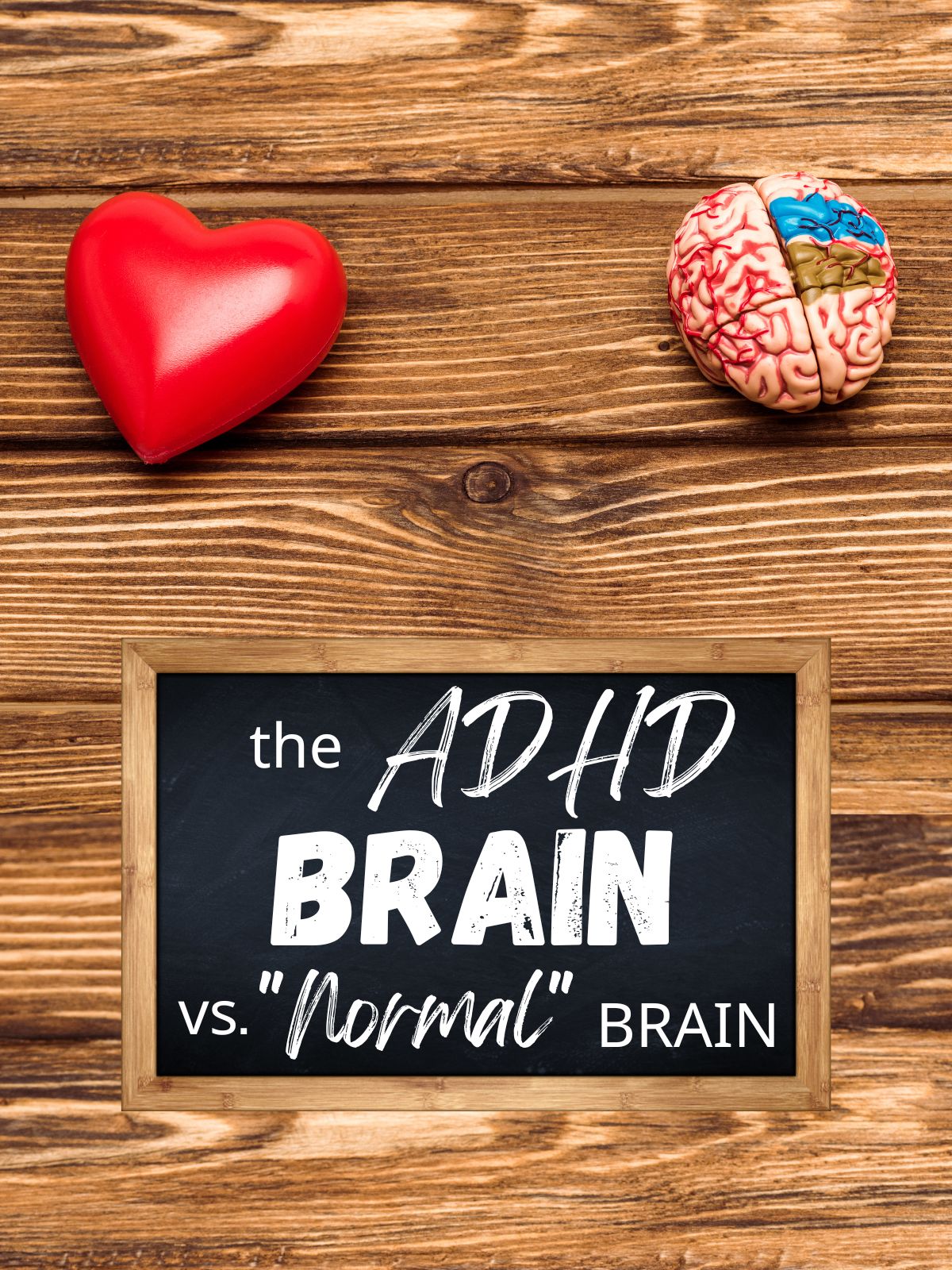
Ways to Improve Emotional Regulation
Improving emotional regulation, especially for folks with ADHD, often involves a combination of self-help strategies, lifestyle changes, and professional support.
Here are some proven ways to enhance emotional regulation:
Mindfulness
The principal among these is to practice mindfulness. Do not be put off by the name and any negative associations it might have for you. What mindfulness involves is trying to observe your feelings as an impartial observer.
Think of someone else in your position feeling what you feel. How would you advise and support them? Then apply that to yourself.
It is generally much easier to see how to fix other people’s problems than our own, (and this is the basis of group therapy), so by disassociating ourselves from our emotions for a time we can gain these benefits in respect of our own feelings.
Check out our 6 Easy Mindfulness Techniques that you can implement in just a few minutes.

Name Your Feelings
A second technique is to try and specifically name your feelings. Rather than just thinking that you are sad or upset, try to analyze how you feel in more detail.
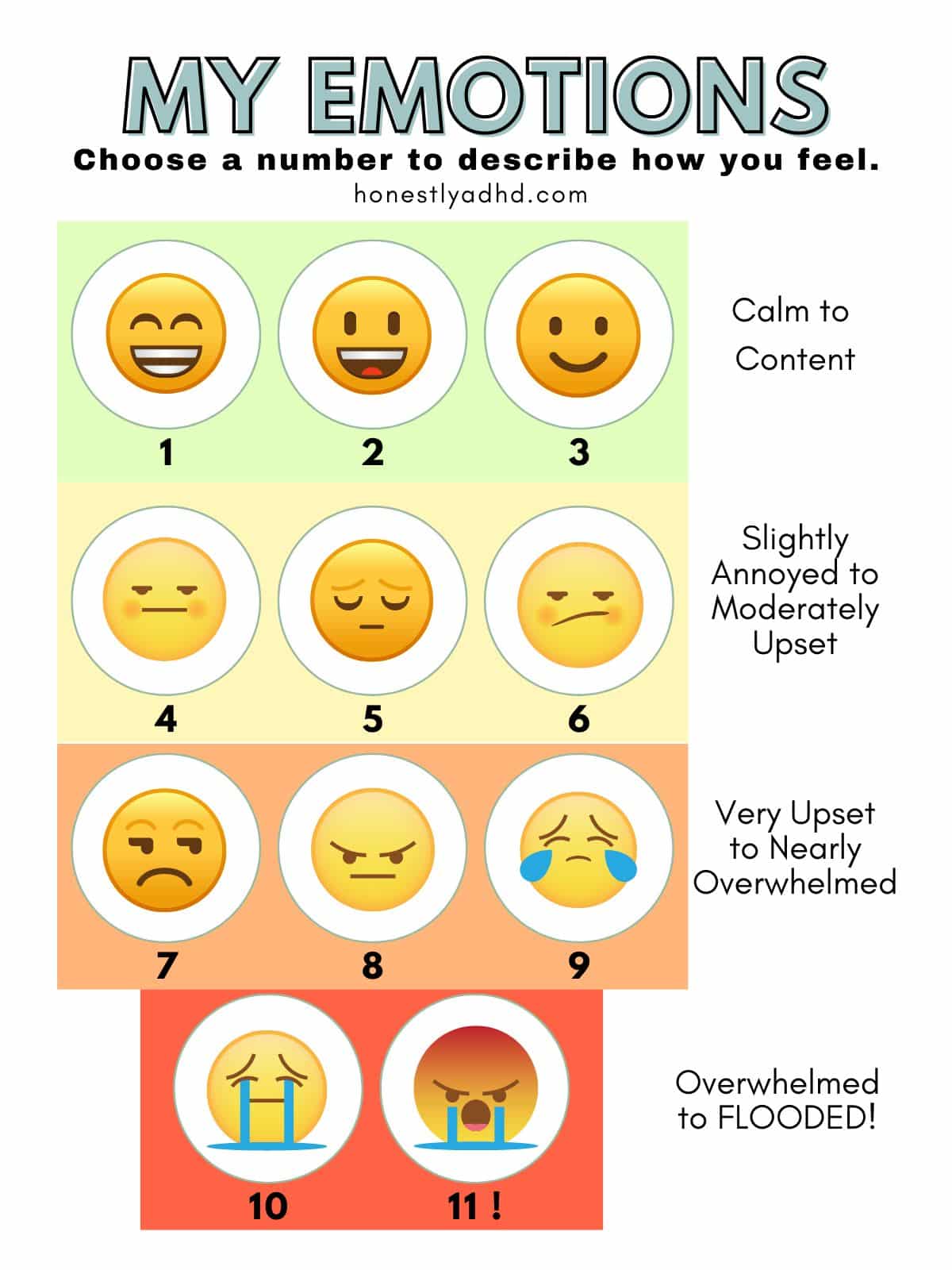
Why are you sad – what are you going to miss because of what has happened, or would it be more accurate to say that you are disappointed, or feel let down?
By getting into more detail about our feelings we can start to manage our emotional response better. But be aware that emotions are not logical or rational, and it is also fine to feel upset without really knowing why sometimes!
Time Management to help Emotional Regulation
Effective time management can reduce stress and the feeling of being overwhelmed, which leads to better emotional control. Easier said than done, right?
Here are some free printables that have really helped us manage our time and start on tasks we don't want to do:
Cerebellum Exercises
Cerebellum exercises involve activities that challenge balance, coordination, and fine motor skills, which in turn stimulate the cerebellar region of the brain.
By engaging and strengthening this area, individuals with ADHD can potentially improve their emotional regulation as the cerebellum is also linked to cognitive functions and processing emotional responses.
This could include:
Martial Arts
Martial arts require discipline, control, and coordination, which can strengthen the cerebellum and help in emotional regulation.
Balance Training
Activities like standing on one foot, using a balance board, or practicing yoga can enhance cerebellar function.
Musical Instruments
Learning to play an instrument like the drums or piano involves rhythm and coordination, which can be beneficial for the cerebellum. Or just listening to music and tapping along.
Increase Dopamine
Certain lifestyle changes and activities can naturally boost dopamine levels, which is particularly beneficial for individuals with ADHD who often have lower levels of this neurotransmitter.

Exercise
Physical activity boosts mood and can reduce impulsivity and hyperactivity, leading to better emotional control.
Structured Routines
Consistent daily routines can provide stability and predictability, reducing emotional volatility.
Sleep Hygiene
Quality sleep is crucial for emotional balance. Establishing a regular sleep schedule can help.
Healthy Diet
Nutritious food supports overall brain health, which can positively affect emotional regulation.
Sunlight Exposure
Spending time in the sun can increase the production of vitamin D, which is linked to higher dopamine levels.
Engaging in Rewarding Activities
Activities that you enjoy, such as hobbies or social interactions, can trigger dopamine release.
By combining these approaches, individuals with ADHD can improve their ability to regulate emotions, leading to better relationships, performance, and overall quality of life.
In Conclusion
ADHD brains are amazing, including yours. They have just as many strengths and weaknesses as other brains, but they tend to be in different areas.
There is absolutely nothing wrong with who you are, but a few tricks and techniques can make living in a world designed for a different type of brain a bit easier. ADHD brains deserve to shine just as much as any others.

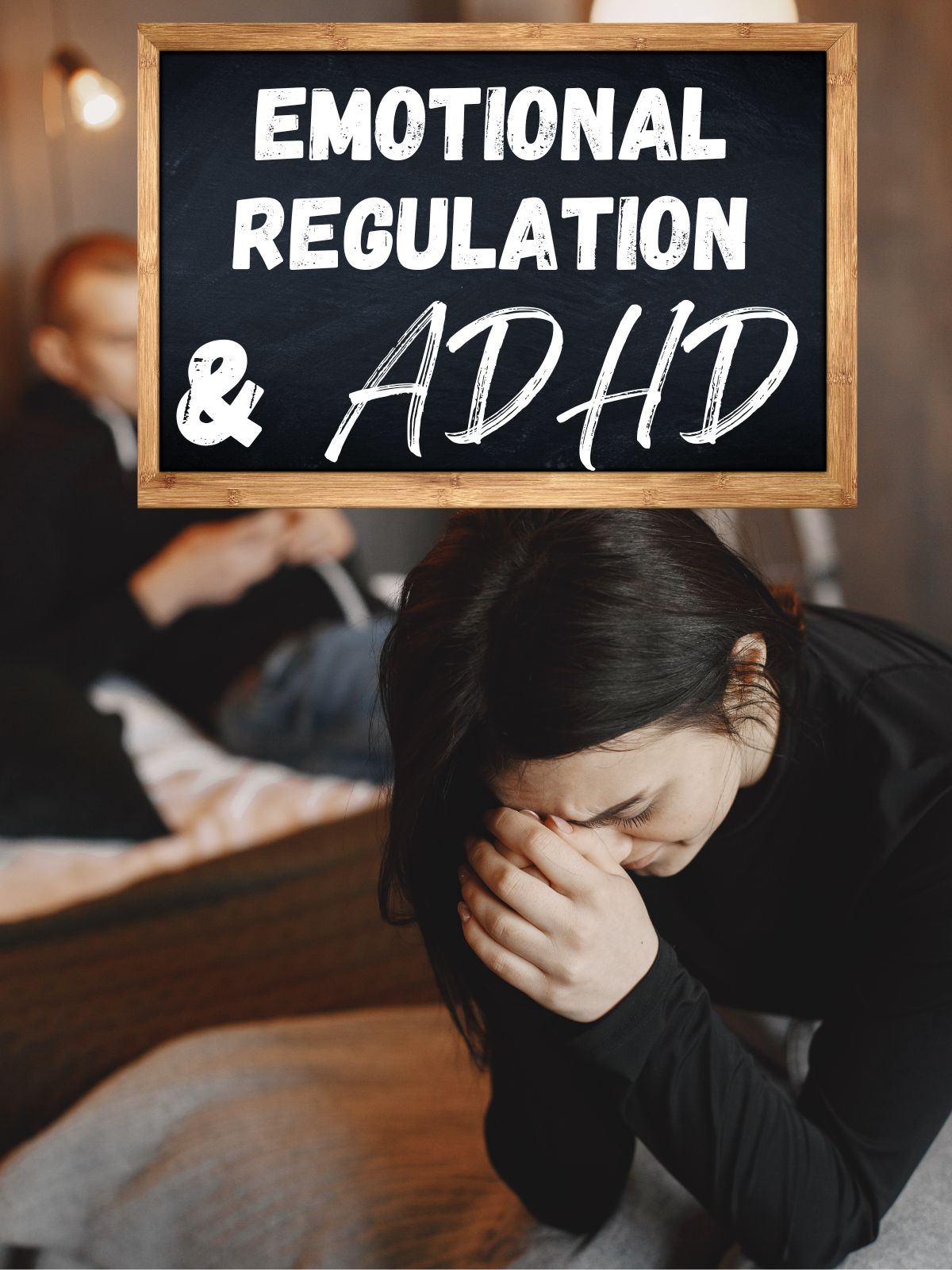
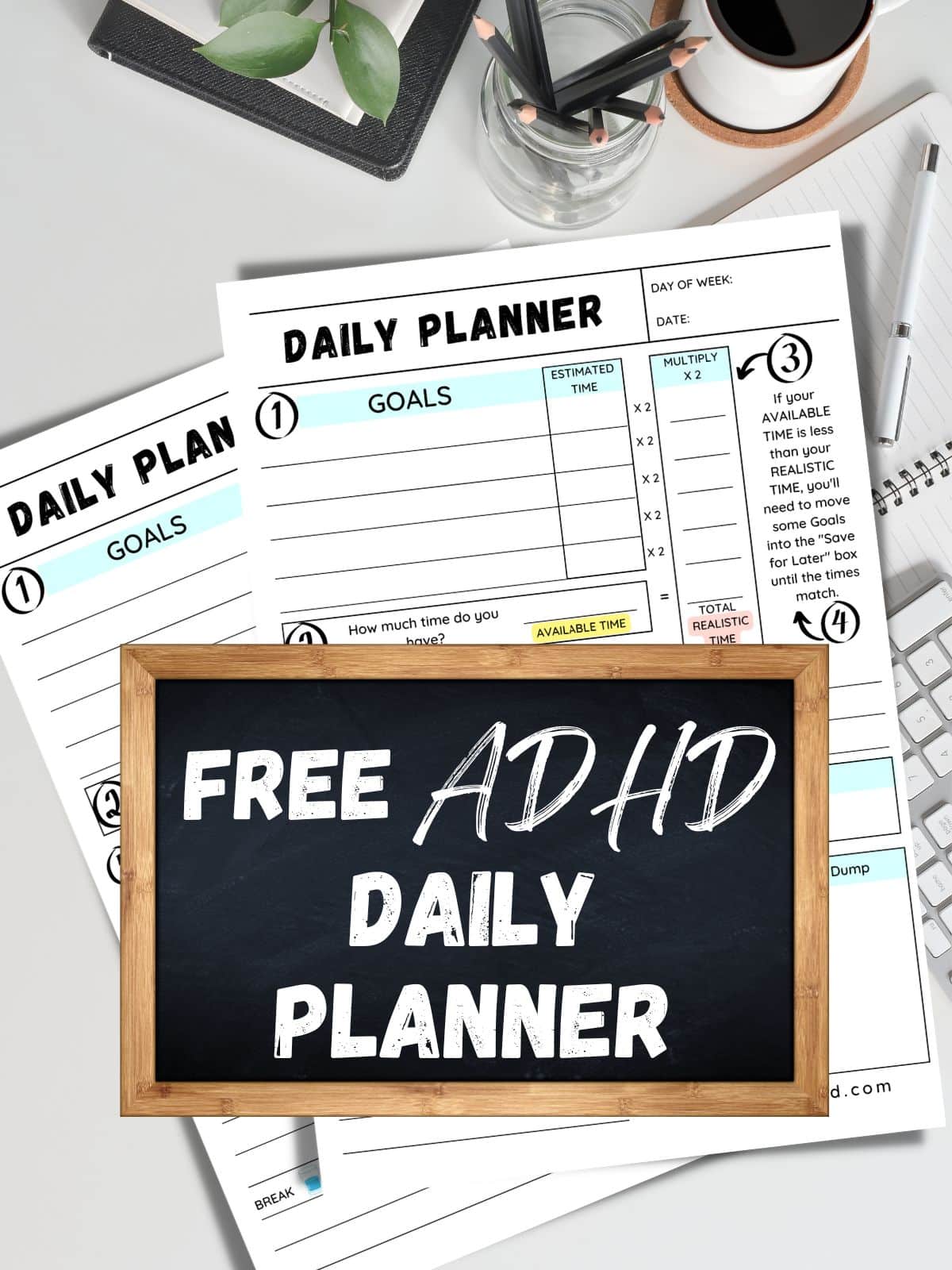
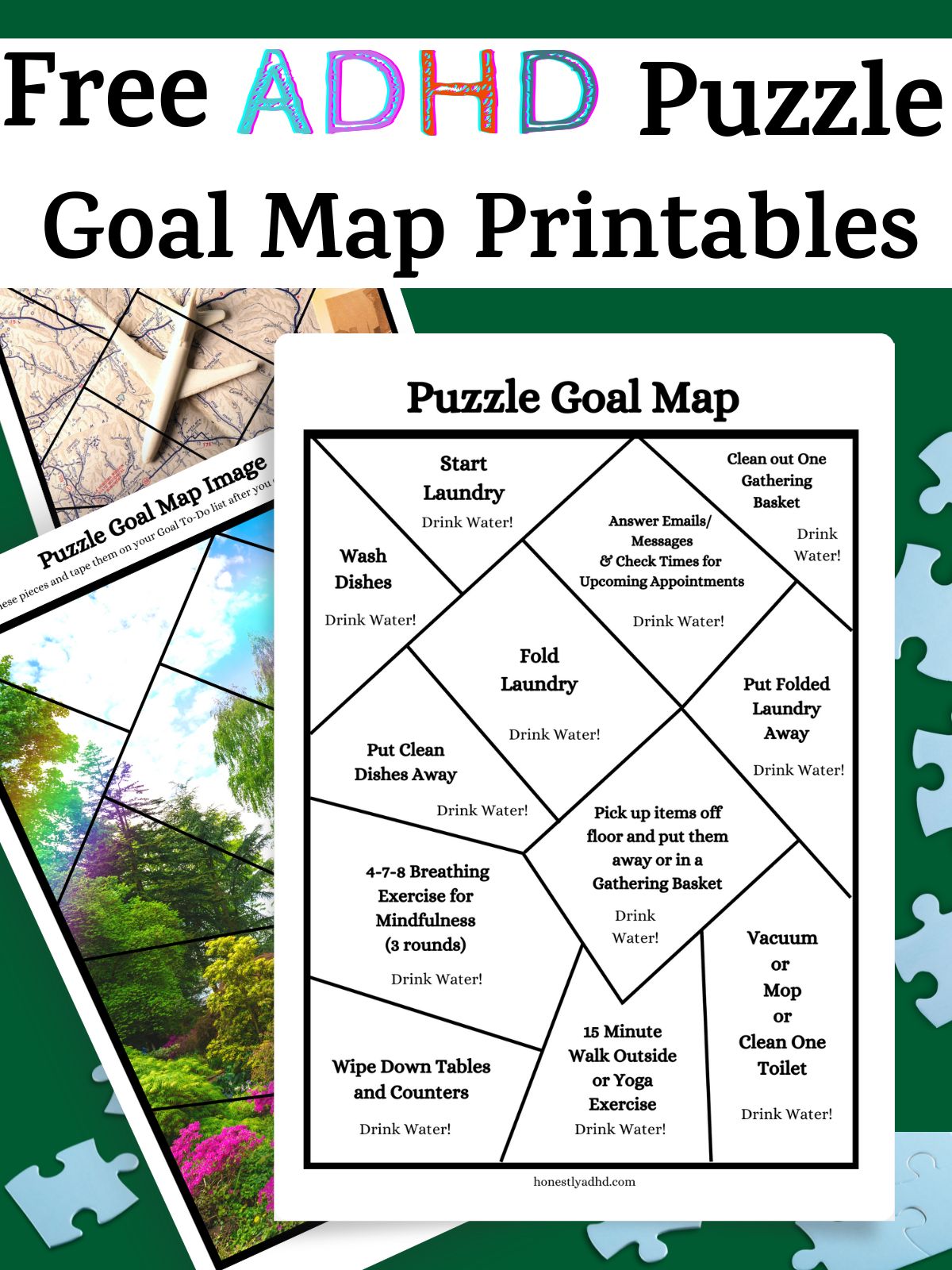
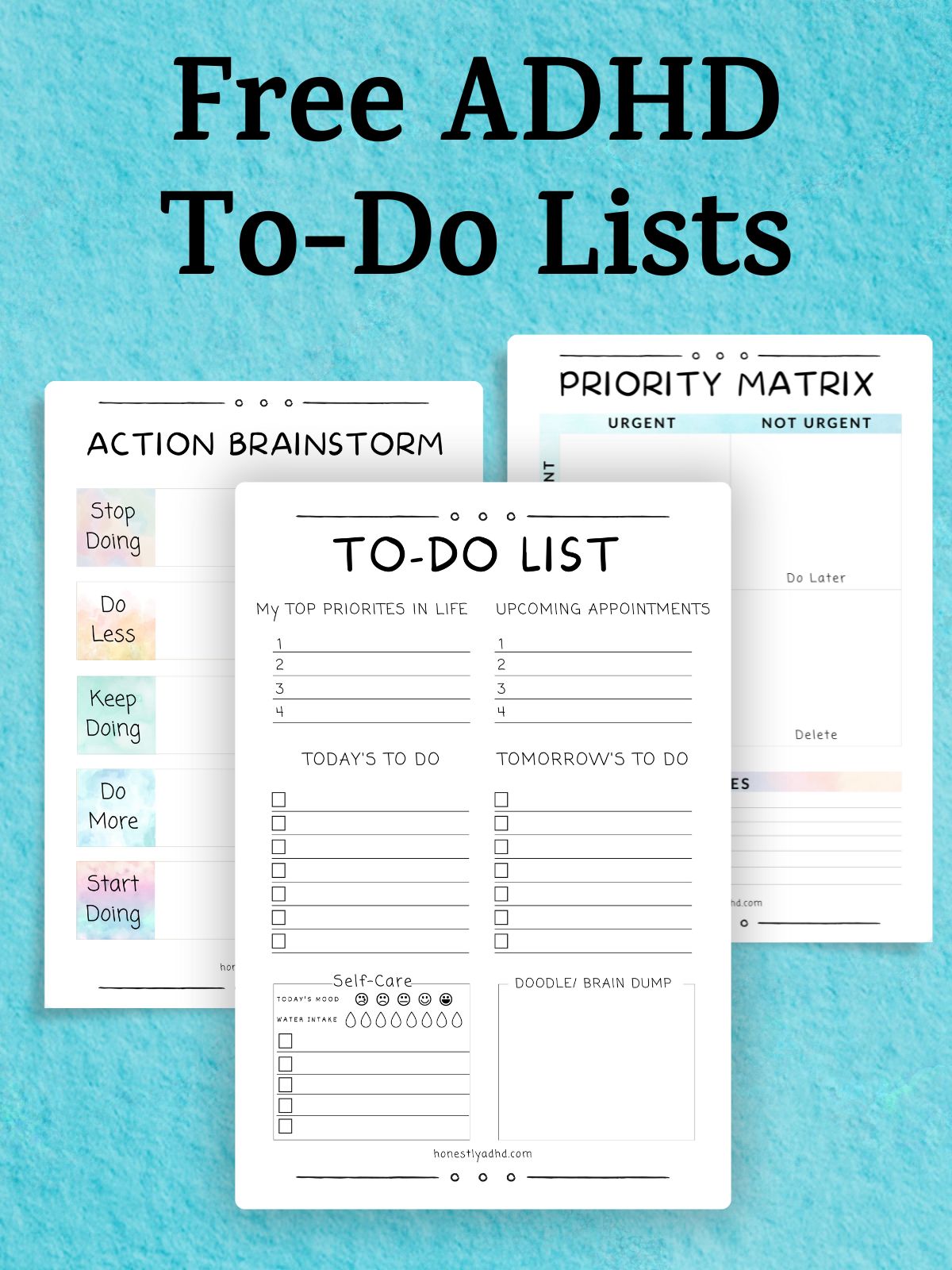
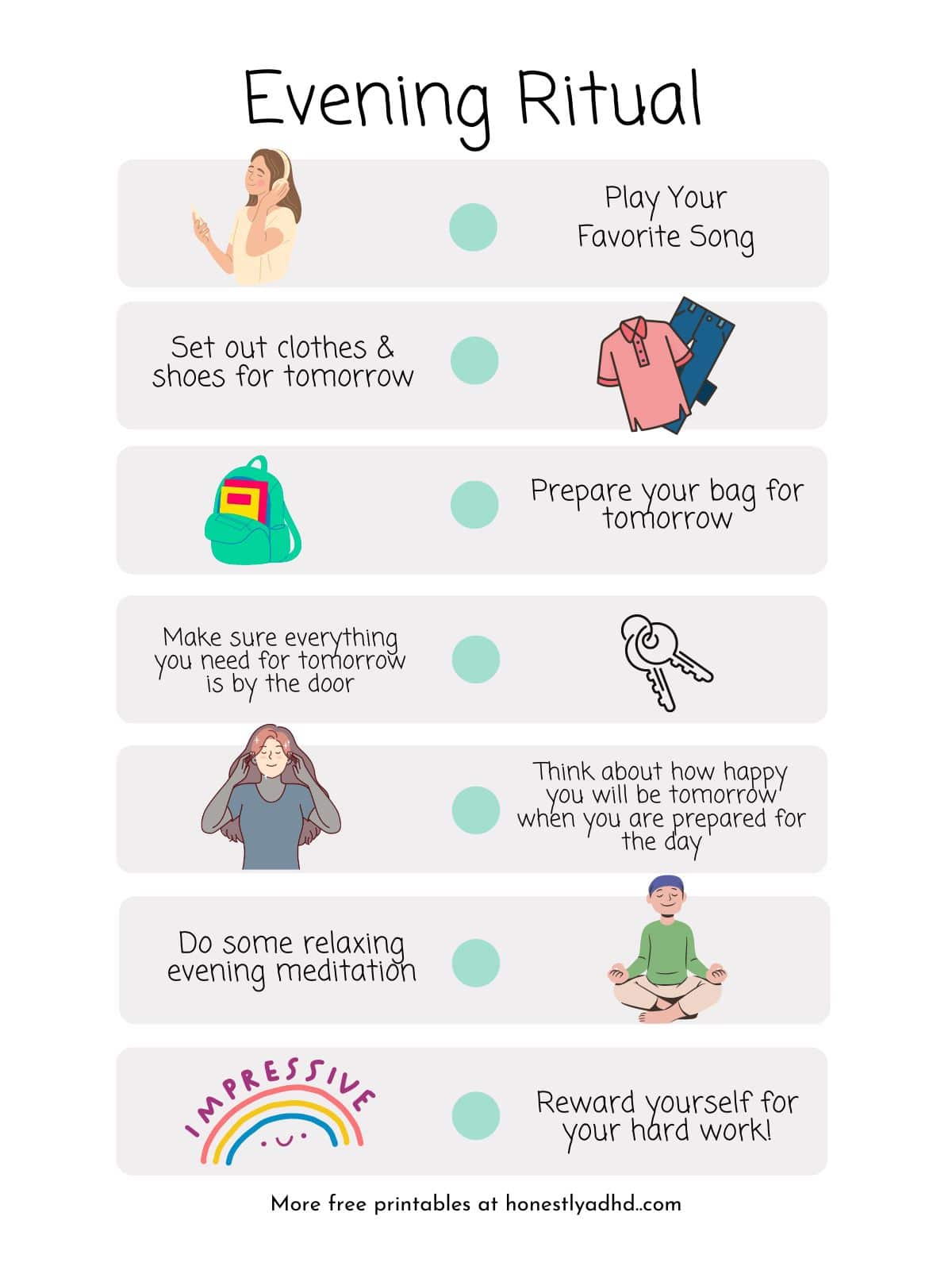
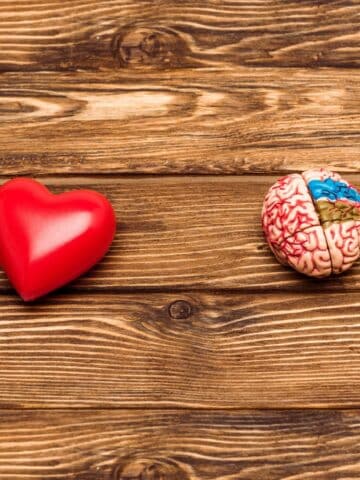



We'd love to hear from you